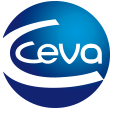 With a little over a year before the EU ban on the use of zinc oxide in diets, vets and farmers are stepping up their search for alternatives to control oedema disease and post-weaning diarrhoea (PWD) in pigs.
With a little over a year before the EU ban on the use of zinc oxide in diets, vets and farmers are stepping up their search for alternatives to control oedema disease and post-weaning diarrhoea (PWD) in pigs.
Three acknowledged experts in this field are being brought together at a webinar – organised by animal health specialists, Ceva – to provide the latest knowledge on this challenging problem to the European pig industries.

Professor Jurgen Zentek, from Berlin University, will be looking at the effects of zinc oxide on the gut microbiota, the consequences of the zinc oxide ban and alternative controls.
Professor Eric Cox, Ghent University, will outline the impact of Shigatoxin-producing E. coli and understanding vaccination strategies. Shigatoxin is the major cause of oedema disease.
Dr Daniel Sperling, veterinary service manager from the Ceva Swine Corporate Team, will summarise the effects of colonisation of pigs by Shigatoxin-producing E. coli and the proven benefits of vaccination on the farm.
The webinar, in English, will take place on Tuesday 23rd March between 18.00 and 19.45 Paris time (17.00-18.45 GMT).
“Our feedback from the field is that the decrease in antibiotic use during the last few years has led to a higher incidence of oedema disease. A similar effect is anticipated following the zinc oxide ban,” commented Ceva veterinarian, Dr Rike Schmelz.
“Since the announcement of the ban in therapeutic concentrations, vets and farmers have been inundated with non-specific alternatives – usually feed additives – to influence the gut micro-organisms. However, to fight diseases specifically it is an advantage to implement a vaccination programme, combined with an improved farm management plan, to control the problem,” she said.
Oedema disease can cause high rates of piglet mortality – up to 30 per cent. It is becoming increasingly evident that the colonisation with Shigatoxin-producing E. coli, without the typical clinical signs and high mortality, is causing significant economic losses due to reduced performance.
“This webinar aims to throw new light on this problem and increase the flow of knowledge to help vets and farmers initiate effective programmes to control the disease before zinc oxide is withdrawn,” said Dr Schmelz.
Veterinarians and farmers who wish to join the webinar – one of a successful series on different topics – should contact their local Ceva representative to register.
February 19, 2021 - Ceva Santé Animale


